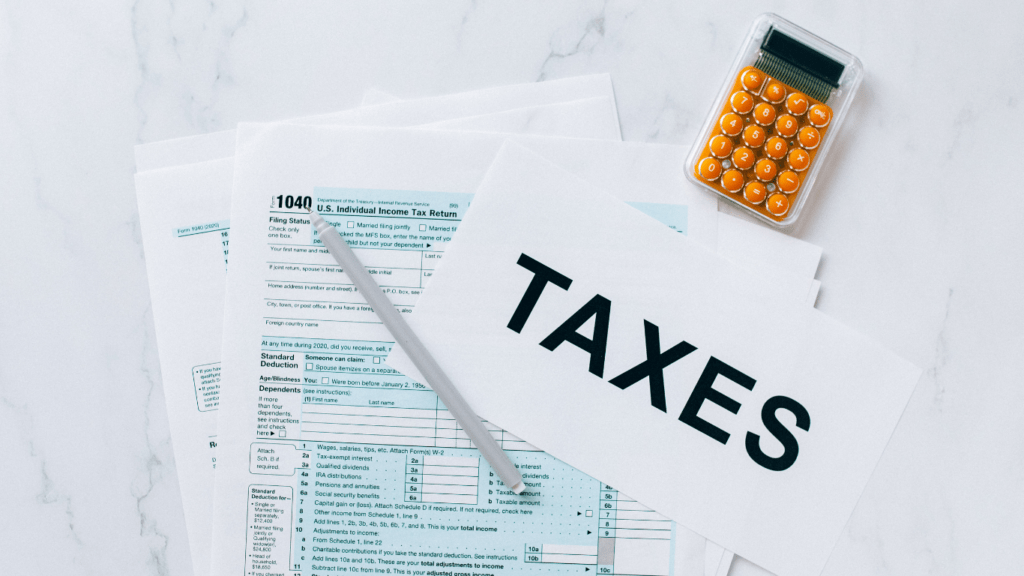Exploring the intricate web of gambling taxes worldwide unveils a landscape of varying regulations and implications for the burgeoning realm of crypto casinos. As I delve into the tax frameworks governing traditional gambling establishments and their impact on the evolving crypto casino industry, a tapestry of challenges and opportunities emerges.
Understanding how different countries approach taxing gambling activities sheds light on the potential hurdles and advantages that crypto casinos may encounter as they navigate this complex terrain. Join me on a journey through the global tax arena, where the intersection of gambling regulations and cryptocurrency innovations paints a compelling picture of the future landscape for online casinos.
From the allure of tax havens to the scrutiny of regulatory authorities, the implications of gambling taxes on crypto casinos are as diverse as the jurisdictions that enforce them. Let’s unravel the implications together and uncover the strategic considerations that shape the destiny of crypto casinos in a tax-conscious world.
Overview of Gambling Taxes
Exploring the landscape of gambling taxes worldwide sheds light on the intricate web of regulations that impact the emerging realm of crypto casinos. Understanding the diverse tax frameworks governing traditional gambling venues is crucial for comprehending how these rules influence the operations of crypto casinos.
This overview delves into the nuances of gambling tax laws across different jurisdictions, revealing the challenges and opportunities that lie ahead for the crypto casino industry. By examining the tax implications, we can uncover strategic insights that will shape the future of crypto casinos in a tax-conscious global environment.
Importance of Understanding Tax Implications
As someone involved in the crypto casino industry, I recognize the paramount significance of comprehending the tax implications associated with gambling activities. Understanding tax implications is crucial for navigating the intricate regulatory landscape and ensuring compliance to avoid potential pitfalls.
Benefits of Complying with Tax Regulations
- Building trust and transparency: Adhering to tax regulations enhances transparency, builds trust with stakeholders, and establishes a solid reputation for crypto casinos in the market.
- Facilitating growth and partnerships: Compliance with tax laws opens up opportunities for favorable partnerships with financial institutions and regulatory bodies, promoting smoother operations and sustainable growth.
Risks of Non-compliance
Conversely, non-compliance with tax regulations can have severe consequences for crypto casinos. Ignoring tax obligations may result in hefty fines, legal sanctions, damaged reputations, and even the shutdown of operations. Non-compliance poses a significant financial risk and can deter potential investors and customers, ultimately undermining the stability and viability of the business.
Therefore, understanding and adhering to tax regulations is imperative for the sustainability and growth of crypto casinos in a rapidly evolving regulatory environment.
Current Taxation Policies in Different Countries
In exploring the taxation landscape for gambling enterprises globally, it’s crucial to grasp the diverse tax policies prevalent in different nations. Here, I’ll delve into the taxation frameworks of the United States, the United Kingdom, Australia, and Macau to shed light on the implications for crypto casinos.
United States
The United States adopts a comprehensive approach to gambling taxation, imposing taxes on both players’ winnings and operators’ revenues. Gambling income, including winnings from casinos, sports betting, and lotteries, is subject to federal income tax.
For operators, the tax rates vary based on the type of gambling activity and can range from 0.25% to 40% of gross gaming revenue. Understanding the intricate tax laws in the US is paramount for crypto casinos to ensure compliance and mitigate risks.
United Kingdom
In the United Kingdom, gambling taxation is primarily focused on operators rather than players. The government levies a Point of Consumption Tax (POCT) on all operators offering gambling services to UK customers, irrespective of their base of operations.
The current POCT rate stands at 21% of gross gaming revenue. Additionally, players in the UK are not taxed on their gambling winnings, providing a favorable environment for both traditional and crypto casinos to operate.
Australia
Australia employs a player-friendly tax system when it comes to gambling. Unlike many countries, Australian residents are not required to pay taxes on their gambling winnings, whether from brick-and-mortar casinos or online platforms.
However, operators offering services to Australian players need to adhere to stringent regulations and pay taxes on their revenues. This taxation model offers a conducive environment for crypto casinos looking to establish a presence in the Australian market.
Macau
As the gambling hub of Asia, Macau has a unique taxation system for casinos. Operators in Macau are taxed based on a percentage of their gross gaming revenue, with rates ranging from 35% to 39%. Additionally, individual players are not taxed on their winnings, making Macau an attractive destination for high rollers and tourists seeking a vibrant gambling experience.
Crypto casinos eyeing entry into the Macau market should meticulously review the tax policies to navigate the regulatory landscape effectively.
Impact of Gambling Taxes on Crypto Casinos
Exploring the impact of gambling taxes on crypto casinos reveals crucial insights into the regulatory landscape shaping this innovative industry. Understanding the tax implications is paramount for navigating legal frameworks effectively and ensuring compliance with diverse regulations worldwide.
Adhering to gambling tax laws plays a pivotal role in establishing the legitimacy of crypto casinos, fostering transparency, and building trust with stakeholders. Compliance not only promotes sustainable growth but also nurtures favorable partnerships crucial for long-term success in the competitive gambling sector.
Conversely, non-compliance with tax regulations poses significant risks for crypto casinos, including severe consequences such as substantial fines, legal repercussions, and damage to reputation. Upholding tax responsibilities is vital for maintaining stability and viability in the evolving landscape of online gambling platforms.
Examining the current taxation policies in key countries, such as the United States, the United Kingdom, Australia, and Macau, underscores the diverse approaches adopted by different jurisdictions. Each country implements varying tax structures, from taxing players’ winnings and operators’ revenues to focusing on Point of Consumption Taxes or imposing taxes solely on operators.
The nuanced tax frameworks across these regions highlight the importance for crypto casinos to strategize effectively to comply with regulatory requirements while expanding their presence in the global market. Navigating the intricate web of gambling tax laws is essential for shaping the future trajectory of crypto casinos in a tax-conscious environment.
Challenges Faced by Crypto Casinos in Taxation
Navigating the intricate world of taxation poses significant challenges for crypto casinos seeking to maintain compliance and sustainability. Understanding and adhering to diverse tax regulations are paramount for the industry’s legitimacy and growth.
1. Compliance Burdens
Meeting tax requirements can be a burdensome task for crypto casinos due to the evolving nature of regulations globally. Ensuring adherence to tax laws in multiple jurisdictions adds complexity and operational costs.
2. Regulatory Uncertainty
The lack of clear guidelines specific to crypto casinos in many regions introduces regulatory uncertainty. Ambiguities in tax laws make it challenging for operators to determine their fiscal responsibilities accurately.
3. Tax Reporting Complexities
Crypto casinos face complexities in reporting tax obligations, especially concerning digital currencies. Determining the valuation, tracking transactions, and calculating taxes on volatile crypto assets require specialized expertise.
4. Cross-Border Tax Challenges
Operating in a digital environment without physical borders poses challenges for determining the appropriate taxation jurisdiction. Crypto casinos often encounter difficulties in identifying the tax implications of transactions spanning multiple countries.
5. Anti-Money Laundering Compliance
Tax compliance for crypto casinos also involves adhering to anti-money laundering (AML) regulations. Ensuring transparent financial practices to mitigate risks of illicit activities adds another layer of complexity to their tax obligations.
6. Tax Enforcement Risks
Failure to comply with tax laws can expose crypto casinos to significant risks, including hefty fines, legal actions, and reputational damage. Non-compliance not only threatens the financial stability of operators but also undermines trust within the industry.
The challenges faced by crypto casinos in taxation underscore the necessity for robust compliance strategies and a deep understanding of international tax frameworks. Adapting to the dynamic regulatory landscape is crucial for mitigating risks and fostering sustainable growth in the evolving landscape of crypto gambling.



 Legal and Regulatory Advisor
Legal and Regulatory Advisor
